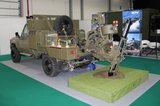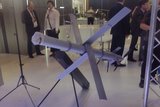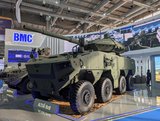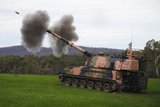BAE Systems wins £10m IR shell contract from UK MOD
BAE Systems has won a £10m contract for a 105mm infra-red illuminating artillery shell from the UK's Ministry of Defence (MoD).
Series production of LUMA Infra-Red (IR) starts immediately and the 8000 rounds will be delivered during 2012. Final assembly will be at BAE Systems' Weapons business facilities in Karlskoga, Sweden. The contract follows one worth £5.5m for LUMA IR in November 2010. Orders for further quantities could follow.
LUMA IR can be fired from the 105mm Light Gun, currently in service with UK forces in Afghanistan.
This order is separate from the long-term partnering contract for the supply of munitions signed between BAE Systems and the MoD in August 2008.
BAE Systems also supplies an 81mm mortar infra-red round to the UK MoD.
Source: BAE Systems
More from Land Warfare
-
![World Defense Show 2026: Large vehicles and counter-drone systems take the limelight]()
World Defense Show 2026: Large vehicles and counter-drone systems take the limelight
Visitors who attended the first World Defense Show four years ago continue to speak of the difficulties they faced with poor facilities and power problems. This year’s event emphasised its status as one of the major defence expositions and as a place where regional players and those less welcome at other shows could take centre stage.
-
![MKJ Warrior Series — The Nett Warrior Qualified Connector for Today’s Soldier Systems]()
MKJ Warrior Series — The Nett Warrior Qualified Connector for Today’s Soldier Systems
ITT Cannon’s MKJ Warrior connectors are designed for the harshest environments, delivering mission critical comms, navigation and USB data/power.
-
![Active vehicle protection comes to the forefront as Trophy and Iron Fist secure contracts]()
Active vehicle protection comes to the forefront as Trophy and Iron Fist secure contracts
Experience on the battlefield is accelerating the adoption of active protection systems as technologies continue to evolve to reflect shifting global defence needs.
-
![World Defense Show 2026: Hanwha increases Middle East presence and reveals Tigon 6x6 sale]()
World Defense Show 2026: Hanwha increases Middle East presence and reveals Tigon 6x6 sale
Shephard sat down with Hanwha Middle East and Africa president Sung Il at World Defense Show 2026 to hear about the company’s plans for the region and how it plans to use local industry success to win deals.






















